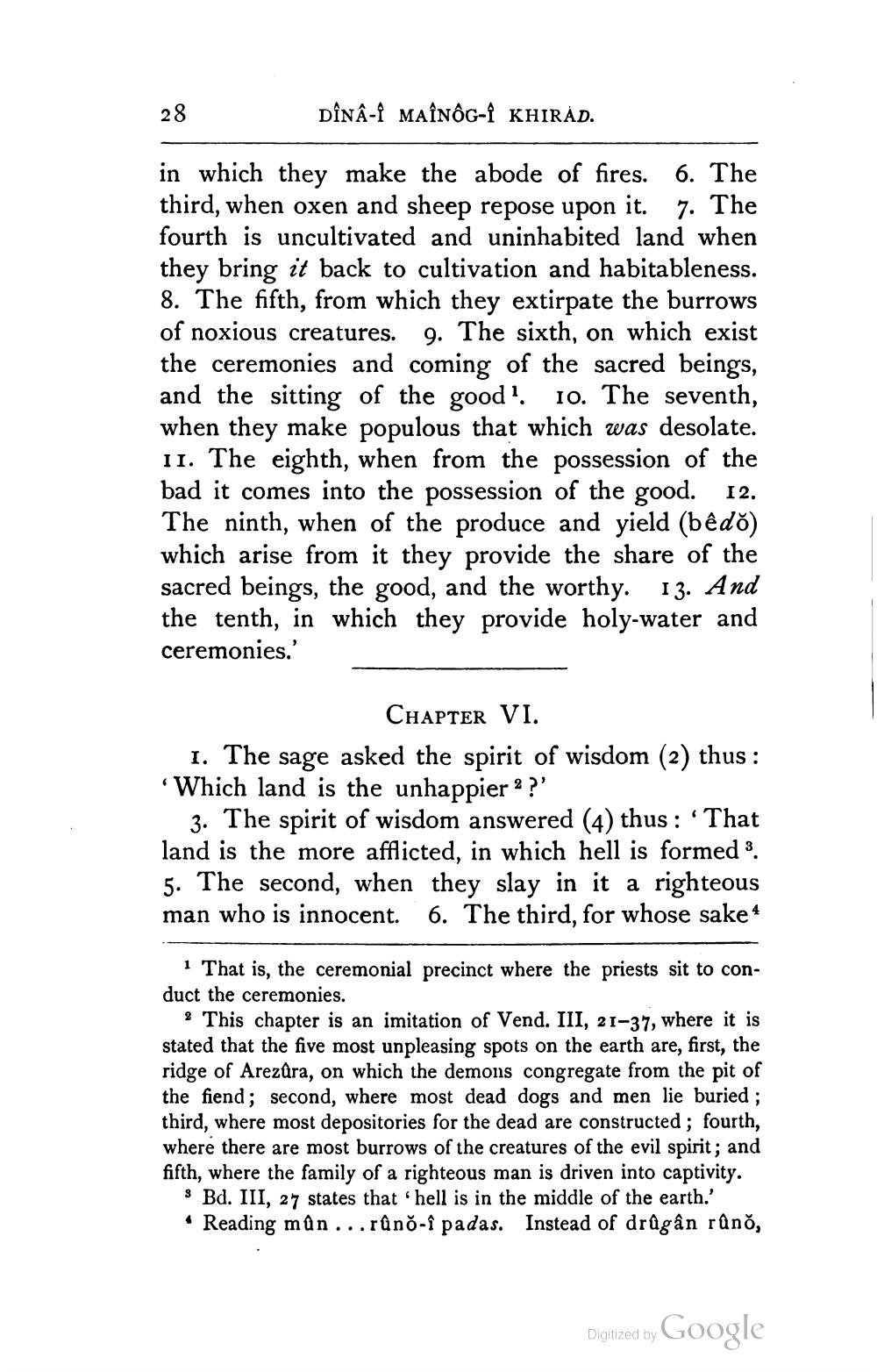________________
28
DÎNÂ-Î MAÎNÔG- KHIRÁD.
in which they make the abode of fires. 6. The third, when oxen and sheep repose upon it. 7. The fourth is uncultivated and uninhabited land when they bring it back to cultivation and habitableness. 8. The fifth, from which they extirpate the burrows of noxious creatures. 9. The sixth, on which exist the ceremonies and coming of the sacred beings, and the sitting of the good?. 10. The seventh, when they make populous that which was desolate. 11. The eighth, when from the possession of the bad it comes into the possession of the good. 12. The ninth, when of the produce and yield (bêdo) which arise from it they provide the share of the sacred beings, the good, and the worthy. 13. And the tenth, in which they provide holy-water and ceremonies.
CHAPTER VI. 1. The sage asked the spirit of wisdom (2) thus : Which land is the unhappier ? ?'
3. The spirit of wisdom answered (4) thus : 'That land is the more afflicted, in which hell is formed 3. 5. The second, when they slay in it a righteous man who is innocent. 6. The third, for whose sake 4
1 That is, the ceremonial precinct where the priests sit to conduct the ceremonies.
2 This chapter is an imitation of Vend. III, 21-37, where it is stated that the five most unpleasing spots on the earth are, first, the ridge of Arezûra, on which the demons congregate from the pit of the fiend; second, where most dead dogs and men lie buried; third, where most depositories for the dead are constructed; fourth, where there are most burrows of the creatures of the evil spirit; and fifth, where the family of a righteous man is driven into captivity.
s Bd. III, 27 states that 'hell is in the middle of the earth.' • Reading mûn... rûno-î padas. Instead of drugân rûno,
Digitized by Google




